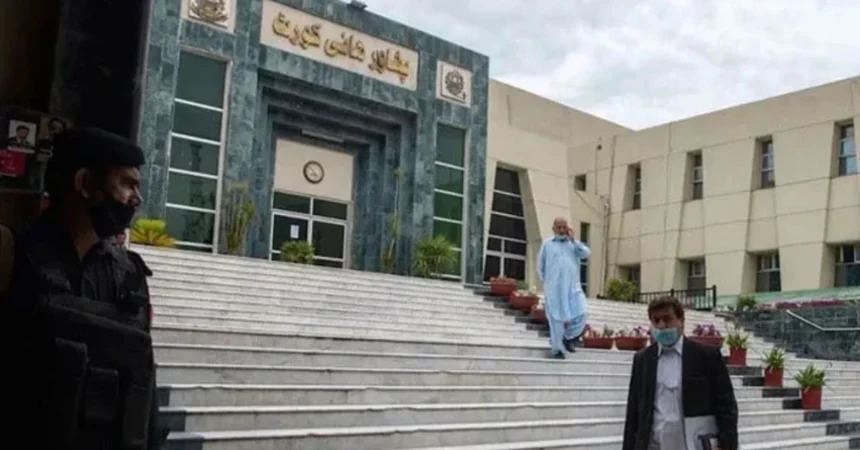In a significant legal development, the Khyber Pakhtunkhwa (KP) government has filed a petition in the Islamabad High Court (IHC) against the recent sealing of the KP House located in the capital city. This move has garnered attention across the political spectrum, sparking debates over the legality of the action and its broader implications for provincial representation in Islamabad. The sealing of the KP House has raised questions about the administration of provincial resources and the rights of provinces to maintain their properties in the federal capital.
Background of the KP House
The KP House in Islamabad is an official residence and facility for the provincial government of Khyber Pakhtunkhwa. Established to provide accommodation and services to provincial lawmakers, bureaucrats, and visitors from KP, the house serves as a vital link between the provincial government and the federal administration.
The KP House is not only a residence but also a venue for meetings, discussions, and various official functions. It plays a crucial role in fostering communication and collaboration between the province and the federal government, making it an essential asset for the KP government. Over the years, it has hosted numerous high-profile meetings and events, further solidifying its importance.
The Sealing Controversy
The sealing of the KP House has sparked controversy and outrage among KP officials and the provincial government. The action is said to have been taken by the federal government, which cited legal and administrative reasons for the closure. However, many officials from KP have criticized the decision as politically motivated and an infringement on the rights of the province.
In their petition to the IHC, the KP government argues that the sealing of the KP House is unconstitutional and violates their rights under the law. They contend that the federal government does not have the authority to seal properties owned by provincial governments without proper legal justification.
The KP government has emphasized the need for provincial representation and autonomy in federal matters, asserting that the sealing of the KP House undermines the spirit of provincial autonomy guaranteed by the Constitution of Pakistan.
Legal Grounds for the Petition
The KP government’s petition to the IHC is rooted in several legal arguments. First and foremost, they assert that the federal government acted outside its jurisdiction in sealing the KP House. The Constitution of Pakistan delineates the powers of the federal and provincial governments, and the KP government believes that this action infringes upon their rights.
Additionally, the petition raises concerns about the due process of law. The KP government argues that proper procedures were not followed before sealing the house, including providing notice or an opportunity for the provincial government to respond. This lack of due process raises questions about the legality of the federal government’s actions.
Moreover, the KP government highlights the economic and social implications of sealing the KP House. They argue that the closure disrupts the operations of the provincial government and hinders its ability to engage with federal officials effectively. This situation could have far-reaching consequences for the governance of Khyber Pakhtunkhwa.
Political Reactions
The sealing of the KP House has sparked a political firestorm in the province, with officials from various parties expressing their outrage. Opposition leaders have criticized the federal government’s actions, labeling them as an attempt to undermine provincial autonomy. They argue that such actions create unnecessary tension between the federal and provincial governments.
Supporters of the KP government have rallied behind the petition, emphasizing the importance of preserving provincial rights. The issue has become a rallying point for those advocating for greater autonomy and representation for Khyber Pakhtunkhwa within the federal framework.
Moreover, the sealing of the KP House has prompted discussions about the broader implications of such actions for other provinces. If the federal government can unilaterally seal properties owned by provincial governments, it raises concerns about the potential for similar actions against other provincial assets.
Implications for Provincial Autonomy
The KP government’s legal challenge to the sealing of the KP House has significant implications for provincial autonomy in Pakistan. The issue of provincial rights and representation has been a longstanding concern in the country, and this incident underscores the tensions between federal and provincial governments.
If the IHC rules in favor of the KP government, it could set a precedent for similar cases in the future, reinforcing the principle of provincial autonomy. Conversely, if the court upholds the federal government’s actions, it may embolden similar actions against provincial properties, further centralizing power in the federal government.
The outcome of this legal battle could shape the future of federal-provincial relations in Pakistan and influence ongoing discussions about constitutional reforms aimed at enhancing provincial autonomy.
The Role of the Judiciary
The Islamabad High Court’s involvement in this matter is crucial. The judiciary has historically played a vital role in adjudicating disputes between federal and provincial governments. The court’s decision in this case could have lasting implications for the balance of power between different levels of government in Pakistan.
Legal experts have noted that the judiciary’s interpretation of constitutional provisions regarding provincial autonomy will be closely scrutinized. A ruling in favor of the KP government could signal a commitment to upholding the rights of provinces, while a ruling in favor of the federal government may lead to further tensions.
Community and Civil Society Responses
The sealing of the KP House has also drawn attention from civil society organizations and community leaders. Many have voiced concerns about the implications of such actions for democratic governance in Pakistan. They argue that a strong and independent provincial government is essential for addressing the unique challenges faced by different regions.
Civil society groups have called for greater transparency and accountability in government actions, emphasizing the importance of adhering to the rule of law. They are closely monitoring the developments in this case and advocating for a resolution that upholds the rights of the KP government and its citizens.
The Future of the KP House
As the legal proceedings unfold, questions remain about the future of the KP House in Islamabad. The provincial government has expressed its commitment to preserving the facility and ensuring it continues to serve its intended purpose. They view the KP House as a symbol of provincial identity and representation in the federal capital.
The KP government’s legal challenge is not just about the sealing of a building; it is about asserting their rights and reinforcing the importance of provincial representation in the federal government. The outcome of this case could ultimately influence how provincial assets are managed and protected in the future.
Broader Context of Federal-Provincial Relations
The sealing of the KP House should be viewed within the broader context of federal-provincial relations in Pakistan. Historically, tensions have arisen between the central government and provinces over issues of power distribution, resource allocation, and governance.
Efforts to address these tensions have led to various constitutional reforms aimed at enhancing provincial autonomy. However, incidents like the sealing of the KP House highlight the ongoing challenges in achieving a balanced and equitable relationship between federal and provincial governments.
The Khyber Pakhtunkhwa government’s move to challenge the sealing of the KP House in Islamabad is a critical development in the ongoing discourse about provincial rights and representation in Pakistan. The outcome of this legal battle will have far-reaching implications for the balance of power between federal and provincial governments, shaping the future of governance in the country.
#KhyberPakhtunkhwa #KPHouse #IslamabadHighCourt #ProvincialRights #FederalGovernment #LegalChallenge #ProvincialAutonomy #PoliticalTension #CivilSociety #Governance #EnergySecurity #PakistanPolitics #ConstitutionalLaw #ProvincialRepresentation #JudicialRole #CommunityResponse #FederalProvincialRelations








